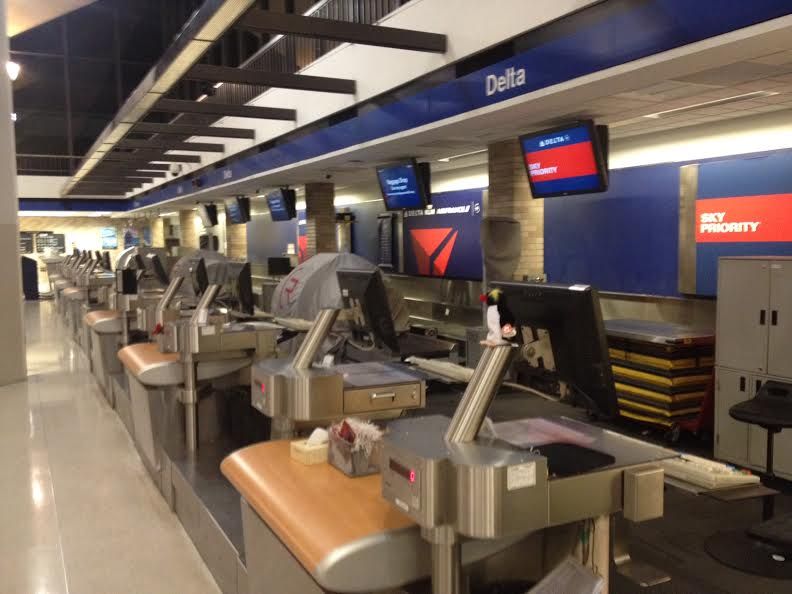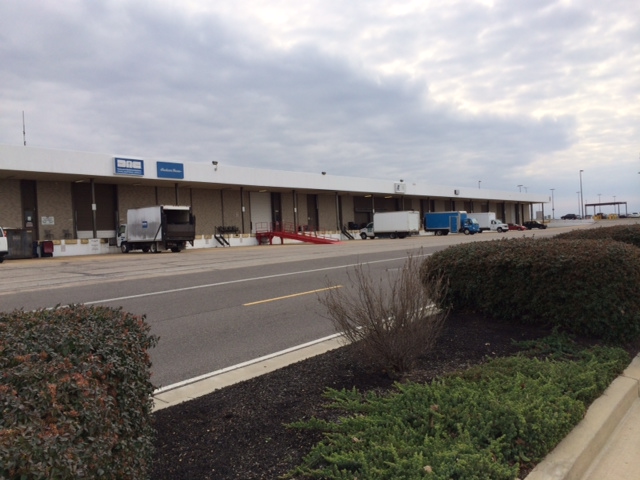
Memphis International Airport, one of the Mid-South’s major economic engines, is in rapidly declining health.
Flights are declining and the airport is already dead as a direct international port.
With the departure of Delta Airlines as the airport’s hub, Delta’s flights in and out of Memphis have declined from about 250 to 50 domestic flights daily with no direct international flights.
Airline employees have told HottyToddy.com that they expect continuing staff reductions to occur in January and expand this summer.
The results will be devastating to Mid-South business, leisure travelers, and Memphis’s reputation as one of the nation’s top distribution centers. Captains of industry and economic development for North Mississippi are worried.
“One of the reasons Toyota located its plant in Bay Springs near Tupelo was the availability of the Memphis International Airport, said Doug Formby, Vice President of Production and Administration for the Blue Springs plant. “The decline of the airport will have a major impact on Toyota and I suspect this will affect the future economic development of North Mississippi.
“We fly executives in and out all of the time. This decline means greater difficulty in getting people in and out and higher cost. If we decide to expand, this will be critical as we bring in many people for any expansion,” he added.
Some of the facility will be shut down as travel declines. Substantial fees paid by FedEx will maintain major assets such as runways and the control tower, but the passenger terminal will operate with only a few gates.
On a recent Thursday evening at 7 p.m., there were only 18 people in the main terminal of the Memphis International Airport.

Eleven people stood waiting for the arrival of the last Delta flight of the day. Six TSA agents were packing up to close while a janitor empted trash.
In the past, the airport was packed with people arriving, departing and changing planes. With the closure of the Delta hub, Memphis International Airport is a shadow of its former self.
Memphis is “international” in name only now. The airport, which once handled up to 11 million passengers a year, is in trouble and must ”reinvent itself” according to Scott Brockman, executive vice president of the Memphis Airport Authority.
Memphis has been a central point for Delta and other airline passengers to change planes, with transfer ticket holders accounting for most of the traffic.
“We are changing as a marketplace,” Brockman said. “In the past, Memphis International Airport was a transfer hub. And that transfer hub came at a price, and that price was higher airfares. A benefit has been a lot more non-stop destinations than the local market could support on its own, as well as international flights.”
“We have always been first or second in cost of airfares,” Brockman continued, adding that as smaller airlines like Southwest and Frontier replace Delta, he hopes increased competition will lower ticket prices.
Current plans call for the closure of two of three terminals as traffic has declined to one-third of what it was at its peak. Only 25 of a total of 78 gates are needed for traffic today. Passenger traffic is down from a high of 11 million to about4.5 million a year while airport ticket revenues have plummeted from $1.2 to $1.4 billion annually to about $900 million.
Maury Lane of Burson Campaigns in Memphis, a division one of the world’s leading advertising, public relations and marketing firms, predicts that Memphis will ultimately offer about 50 flights a day, down from a peak of 350 per day. Several organizations, including “Come Fly Memphis” and the Mid-South Air Service Task Force are attempting to develop local support programs to maintain Memphis as a travel center.
“We have to reinvent ourselves from a regional transfer hub to an airport that serves Mid-South business and leisure travel needs, “ Brockman said. “Higher fuel prices and the fact that Memphis was the smallest hub city for Delta caused the airline to close the Memphis hub.”
The Huffington Post quoted Delta spokesman Anthony Black stating “Demand has fallen and fuel prices are persistently high, making the Memphis hub unprofitable. There’s only enough demand for 5-seat regional jets on most routes and Delta is phasing those planes out.”

The decline in available flights will impact Mid-South business, as well as leisure and business travel, according to Jon Maynard of the Oxford-Lafayette County Chamber of Commerce.
“Having an international airport within an hour of Oxford is huge for business,” Maynard said. “We have several international companies in our area and they need convenient access to the globe. We often market the Memphis airport as a valuable commodity in business recruitment. If we begin to lose capacity there, then our competitive edge is a little duller than it should be.”
Maynard added that an international airport is important to Oxford’s retiree recruitment and to students, faculty and parents at The University of Mississippi.
“In North Mississippi, we have an ill deserved reputation for ‘you can’t get there from here,’” Maynard said. “When a prospective student, faculty member, businessman or retiree finds they can get to and from Oxford from anywhere on the globe rather easily, that myth is dispelled. If we begin to erode that ease of access, then the entire region will suffer.“
According to Tom Eppes, chief communications officer at the University of Mississippi, UM has not seen a significant impact resulting from Delta’s closure of its hub, yet.
“The best indicators we would have on whether the changes at the Memphis airport are a problem would be prospective students and their parents, who having been frequent visitors in recent months, and those students who flew home for the Thanksgiving break,” Eppes said. “We’ve had no reports of air travel challenges with either group. We will keep monitoring the situation, but at this point there do not seem to be problems with air travel out of Memphis.”

Vickie Dupree, CEO of the Olive Branch Chamber of Commerce, said the decline in flights may impact the area, but she is “optimistic” about prospects for the airport.
“New leadership is working hard to make it better. Memphis is not alone in the changes taking place in the industry,” she said.
Although the Memphis airport will continue to be called ‘international’ because it has a customs service, it doesn’t meet that mark by industry standards, which require an airport to have direct international flights.
“Memphis now has no direct international flights,” Brockman conceded. But he also argued for continued support saying, “The airport has an economic impact on the region is $23 billion a year.”
According to Brockman, most of that economic impact is associated with Memphis being a major distribution center. Worldwide air shipper FedEx is located at the airport along with significant UPS facilities.
“We will put Terminals A and C into an ‘induced coma’ where they can be reactivated easily in the future,” Brockman said. “But the reality is we have got to deal with the cards on the table. Whatever we do in the future must be reliable and sustainable.”
Despite new flights offered by Southwest Airlines and additional flights expected this spring by Frontier Airlines, the airport that has been a Mid-South icon and transportation asset for decades is losing ground and threatening the economic health of the entire region.
Story and Photos by HottyToddy.com reporter Jim Roberts
